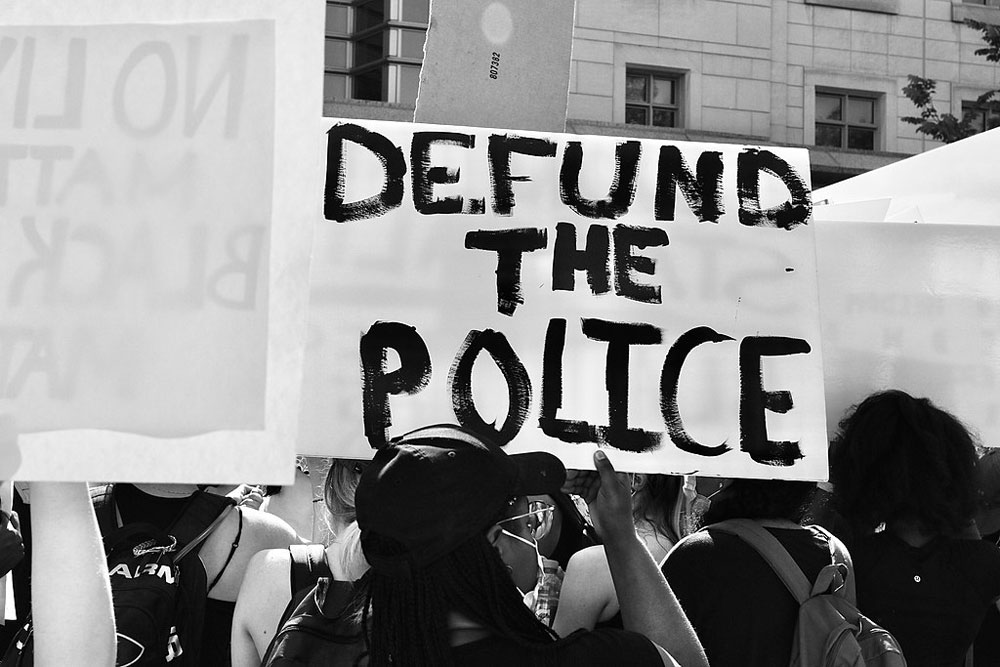
August 28, 2020; NBC Washington
“Demonstration without legislation will not lead to change,” Rev. Sharpton exclaimed at the August 28th March on Washington as he and many others advocated for Senate to approve the George Floyd Justice in Policing Act and the John Lewis Voting Rights Act. Even with mass demonstrations and continual national exposure, federal police reform bills addressing choke holds, no-knock warrants, and accountability have been struggling to get passed before the election. With months left before the election, and new year, what will the human cost be for a nation where communities are grieving, traumatized, divided, and adrift?
This struggle for legislative policy action to properly meet this moment has been halted on the local level as well. On Monday, August 31st, a special session of the state legislature called to order by Wisconsin Governor Tony Evers to focus on police reform lasted for less than 30 seconds. Wisconsin law does not require lawmakers to debate legislation during special sessions, yet given the national and local circumstances, this decision to hold off until a later date came off to many as disappointing. With no senate Republicans present for the session, their leadership highlighted the recently announced task for that would consider new legislation, which may take place in 2021.
This is not the first time Wisconsin’s Republicans have had less than energetic responses to police brutality or the well-being of the state’s minority communities, who have experienced historically gerrymandered districts. Bills focusing on racial justice issues and economic and health disparities due to COVID-19 have been ready since Juneteenth, with Wisconsin’s Legislative Black Caucus and Governor Evers advocating for action, yet they’ve been stalled by Republican members of the state’s chambers.
Sign up for our free newsletters
Subscribe to NPQ's newsletters to have our top stories delivered directly to your inbox.
By signing up, you agree to our privacy policy and terms of use, and to receive messages from NPQ and our partners.
“Why is it that when men, women, children, Black and Brown people are being murdered, we don’t change policy? We’re faced with barriers, excuses, political posturing, and every reason in the world why we can’t make change. We must address excessive force immediately,” said Rep. Kalan Haywood (D-Milwaukee) in response to the lackluster legislative progress. Shelia Stubbs (D-Madison) stated, “Blame for Jacob Blake’s shooting does not fall at the hand of just one officer. That day, our community was failed by leaders in action, leaders who have long overlooked the systemic injustices in our policing system. They failed us.”
In the hours before the short-lived special sessions, organizers, community members, and advocates called for more investment into solutions for gun violence and reform on police misconduct. Director Greg Jackson of Community Justice Action Fund, a nonprofit focused on empowering communities of color to prevent gun violence, stated, “We need resources, not policing. We need schools, not prisons. We need justice, not justifications.”
But justice, action, and even bridging a way forward seem slow to start, or unimaginable given the political divides nationally and locally. Yesterday, 18-year-old Deon Kay was shot and killed by DC police, the first fatal police shooting since September 2019. Seven police officers in Rochester, New York, have been suspended due to the suffocation of Daniel Prude, who was experiencing mental distress, while in their custody. These stories all hold nuances and unknown details but come at the costs of lives in the present and trauma in the future. As Ta-Nehisi Coates states in his 2015 Between the World and Me, “Should assaulting an officer of the state be a capital offense, rendered without trial, with the officer as judge and executioner? Is that what we wish civilization to be?”
If these systemic issues are not openly acted upon, what will be the cost between now and Election Day? What is the cost until the next state session? What will it cost for communities’ voices and trauma to be heard, validated, and reconciled?—Chris Cannito













